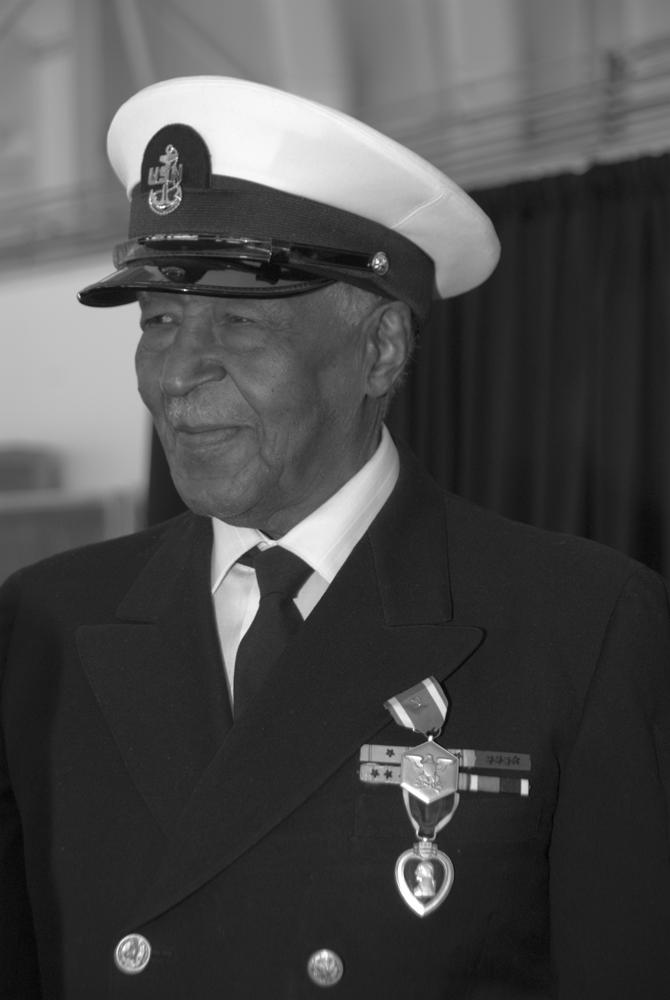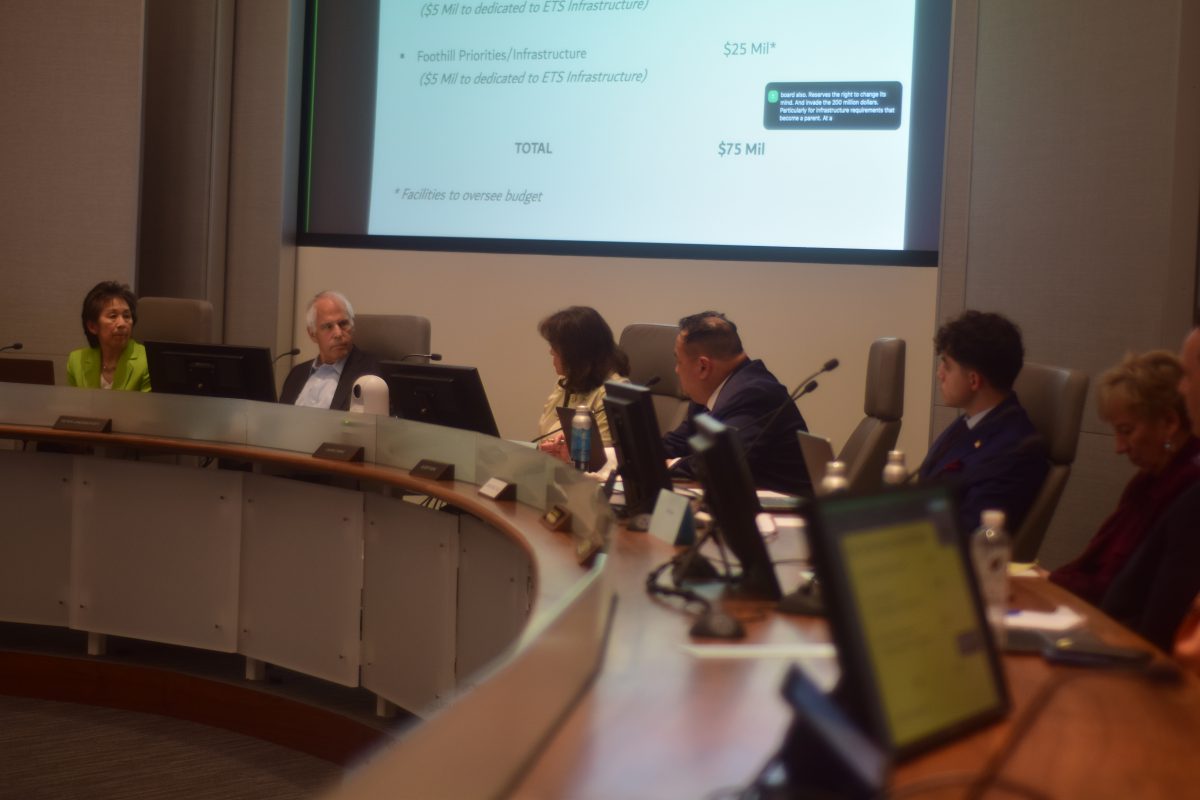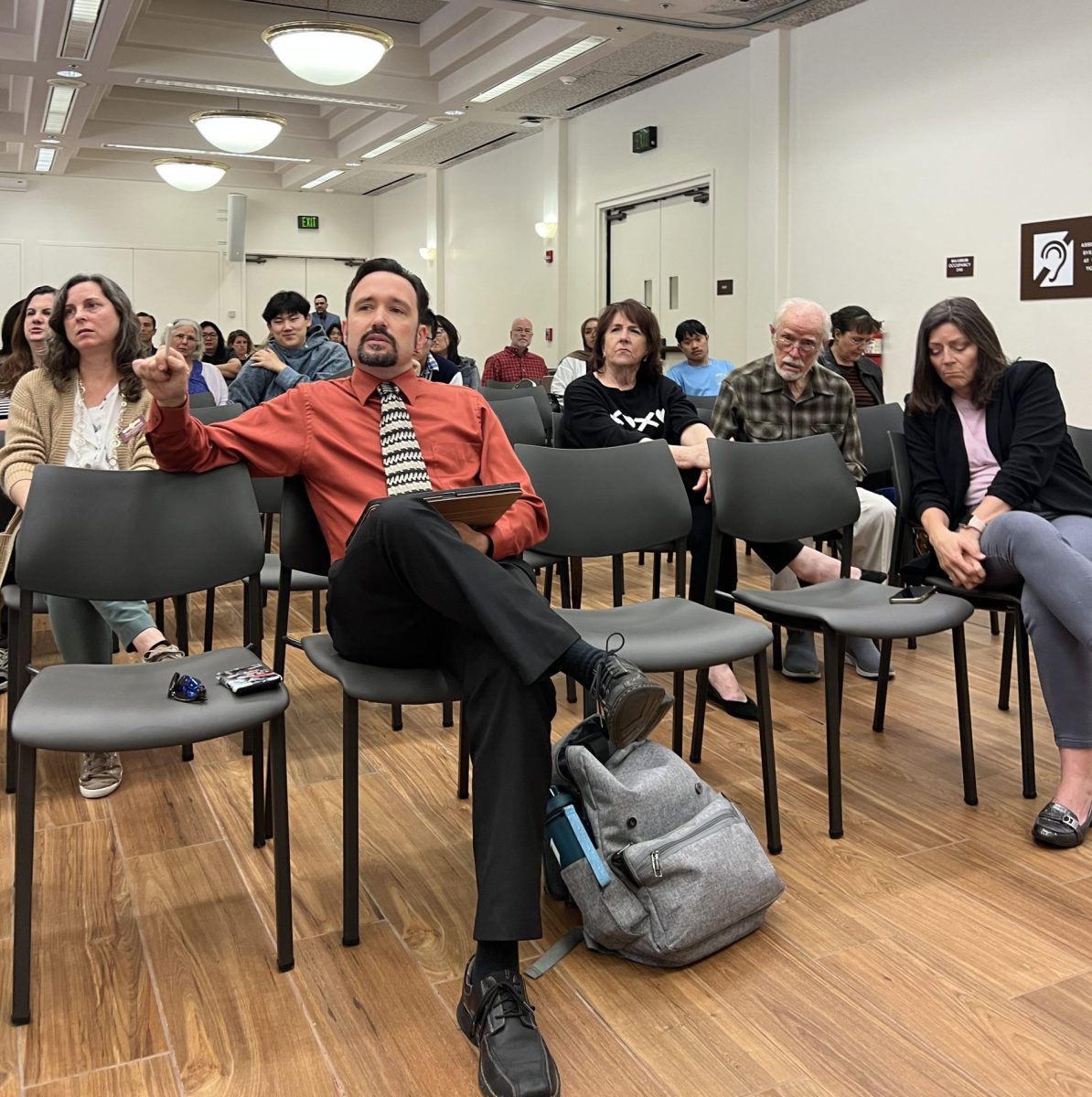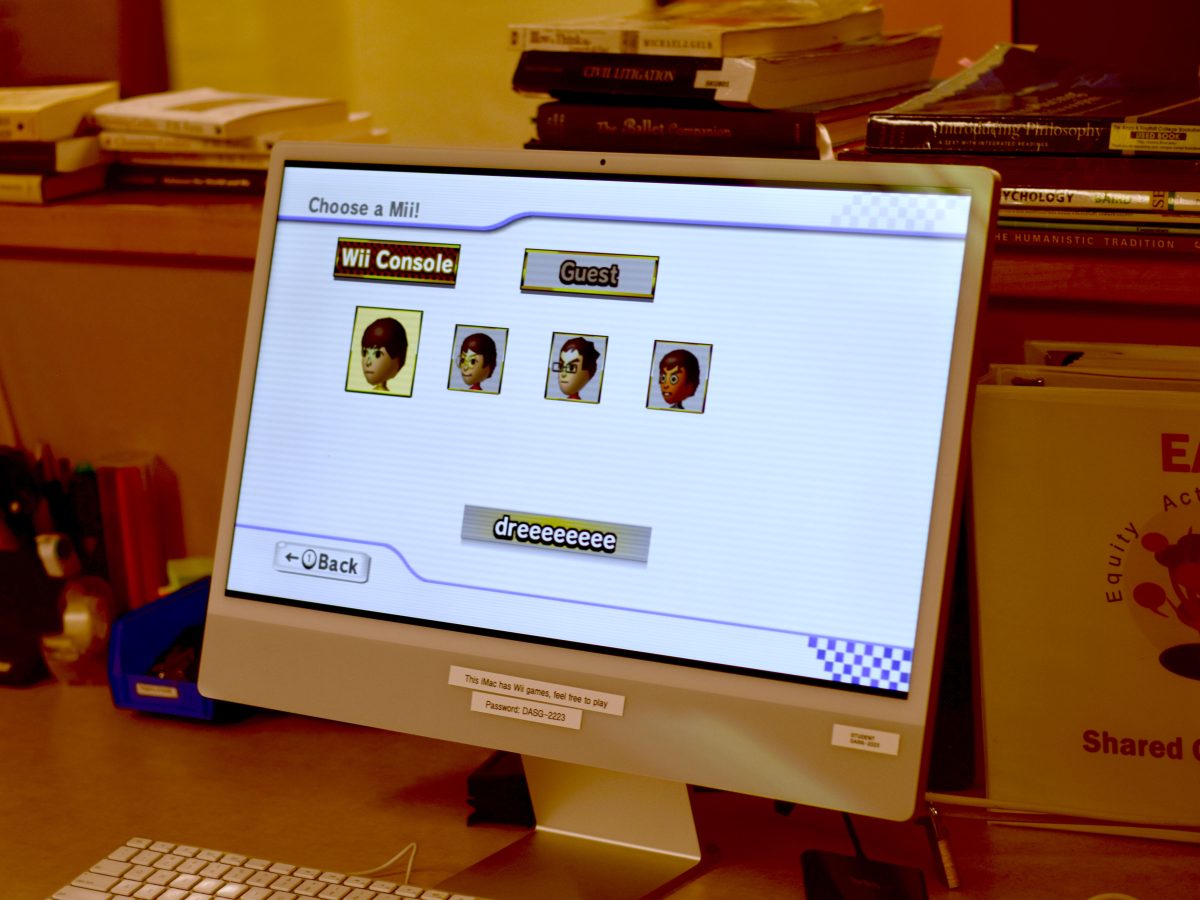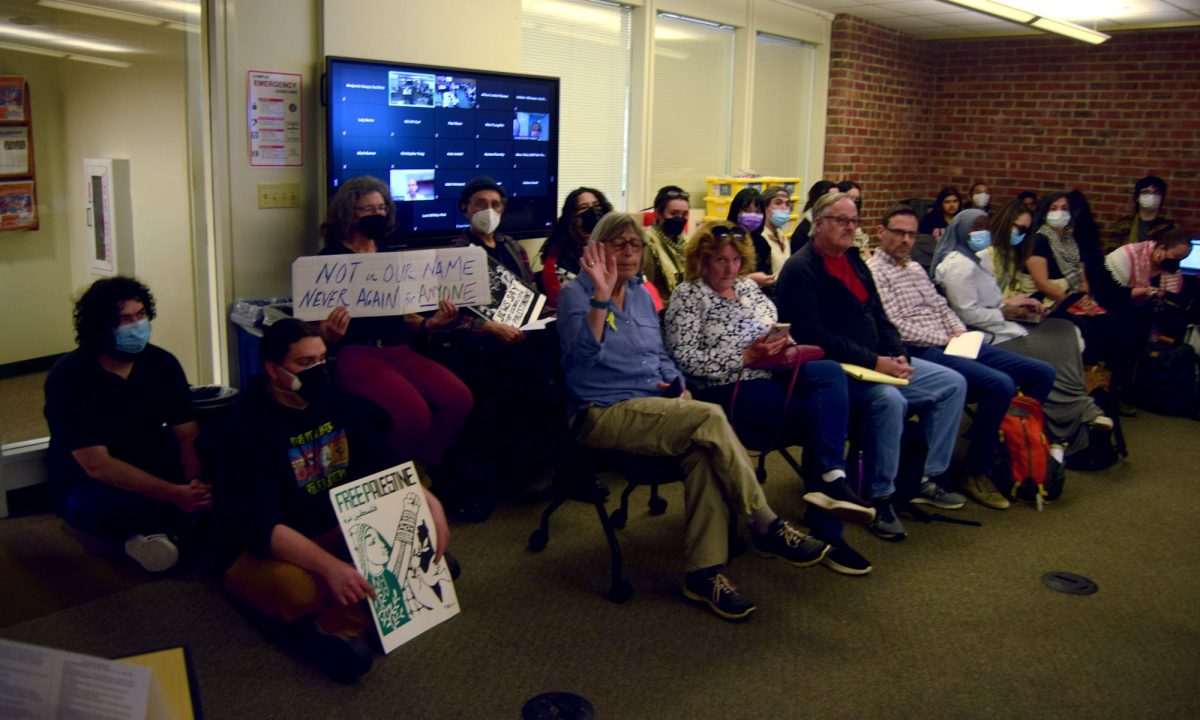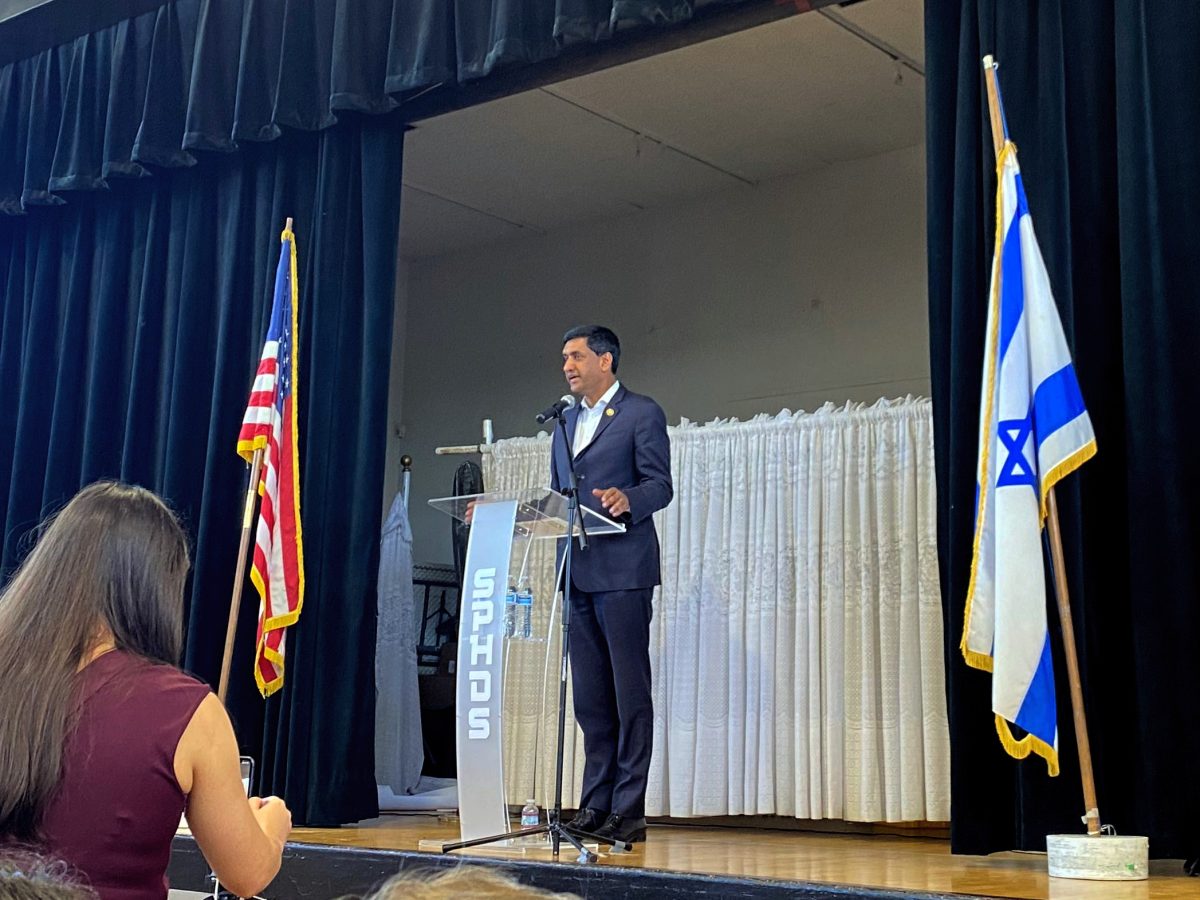A Foothill College instructor who played a key role in publicizing the heroic deeds of a World War II Navy veteran helped him celebrate a long overdue recognition Jan. 17 at Moffett Field.
Sheila Dunec first learned of Carl Clark’s story in 1999 while teaching a community writing course. After hearing how Clark fought a fire and aided injured sailors following a kamikaze attack on his ship, Dunec spent years seeking formal recognition for Clark’s bravery.
A crowd of 600 chanted “hero” as Clark, an African-American, received recognition for his actions aboard the USS Aaron Ward, an honor originally denied to him because of his race.
In a ceremony held on the Tuesday after Martin Luther King Jr. Day, Clark, now 95, stood tall on stage as Secretary of the Navy Ray Mabus approached him with a certificate and medal that recognizes his efforts aboard his ship 66 years ago.
“America considers you a hero and I am proud to offer this symbol of thanks from a grateful Navy and nation,” said Mabus, as he pinned the Navy and Marine Medal of Commendation with Combat Device above Clark’s Purple Heart.
Clark had been skeptical he would live long enough to receive recognition, but his niece, Jo Strowder, was more optimistic.
“We knew we had at least five more years, because he just renewed his driver’s license,” she said, grinning.
Strowder sat in the front row with the rest of Clark’s family, cheering her uncle on and fighting back tears during the ceremony.
“We all have known he’s a hero for many years now,” Strowder said. “This is just the icing on the cake.”
On May 3, 1945, six kamikaze planes plummeted into the USS Aaron Ward, which was fully fueled and stationed just outside Okinawa, Japan.
The planes ruptured massive holes in the vessel, igniting a firestorm that raged across the deck and through the bowels of the ship.
Clark was part of an all-black eight-man team responsible for safeguarding the ammunition locker, one of the most dangerous jobs on the ship and a task delegated to them because of their race.
“We were expendable,” Clark said.
Unaware at the time that the rest of his team had been killed, Clark hoisted a hose usually manned by several men and kept the flames from reaching the combustible cargo, preventing what would have been a fatal blow to the already crippled vessel.
Despite sustaining a broken collarbone, Clark carried wounded men to the medic station throughout the night. Some of these sailors “were the very same men who regularly addressed him with racial slurs,” said U.S. Rep. Anna Eshoo, who helped Dunec share Clark’s story with appropriate military and government officials.
The captain of the ship came to Clark after they had docked and commended him and the other surviving African-American sailors.
“Captain Sander went all the way to Washington D.C. to try to get some recognition for what we did,” Clark recounts in a filmed interview collected by Dunec, “but when he came back to the ship, he told me and the other stewards, ‘I tried, but they wouldn’t even give me a letter. They wouldn’t give me anything.'”
Clark’s name and those of every other African-American aboard his ship were omitted from the battle reports.
“It wouldn’t look good if a black man saved the ship,” Clark said.
Clark’s story was first publicized through a community War Stories writing course taught by Dunec. She began teaching the class at Menlo Park library in 1999.
Dunec asked Clark and others to record their stories on video. She worked with Marty Kahn, department supervisor of the Technology Resource Group at De Anza College, and recorded the interviews at the De Anza Media Center. The footage was compiled into a documentary titled “Remembering WWII: First-Person Accounts.”
The first public showing took place at the Foothill main auditorium in November, 2009, and was filled to capacity. Inspired by the attention, Dunec encouraged Clark to pursue formal recognition, but Clark always told her the same thing: “‘Sheila, it’s too late.'”
After screening the film several more times around the county, Dunec began gathering the required materials to send to the military for a request of commendation, something that proved difficult.
“Carl was systemically excluded from all the records, and of course all the awards depend on documentation,” Dunec said.
One such requirement is an officer’s corroboration of the story. James Scott, a journalist for the Bay Citizen, became aware of Dunec’s efforts and tracked down Lefteris Lavrakas, one of two living officers who survived the attack. His testimony was crucial in confirming Clark’s story. Lavrakas, who died July, 2011, urged Dunec to complete her mission.
“Go get justice for Carl,” he told Dunec.
Three years after the official request was submitted and more than a decade since his story had been revealed, the Navy finally recognized Clark.
“It’s been a long journey,” Dunec said.
Before the ceremony, Clark told Dunec he planned on “standing as tall as he can for all the African-Americans who weren’t recognized.” On stage, before servicemen, family, friends, and more media attention than he ever expected to attract, he did just that.
“I want to share this honor with all of those men,” Clark said.



